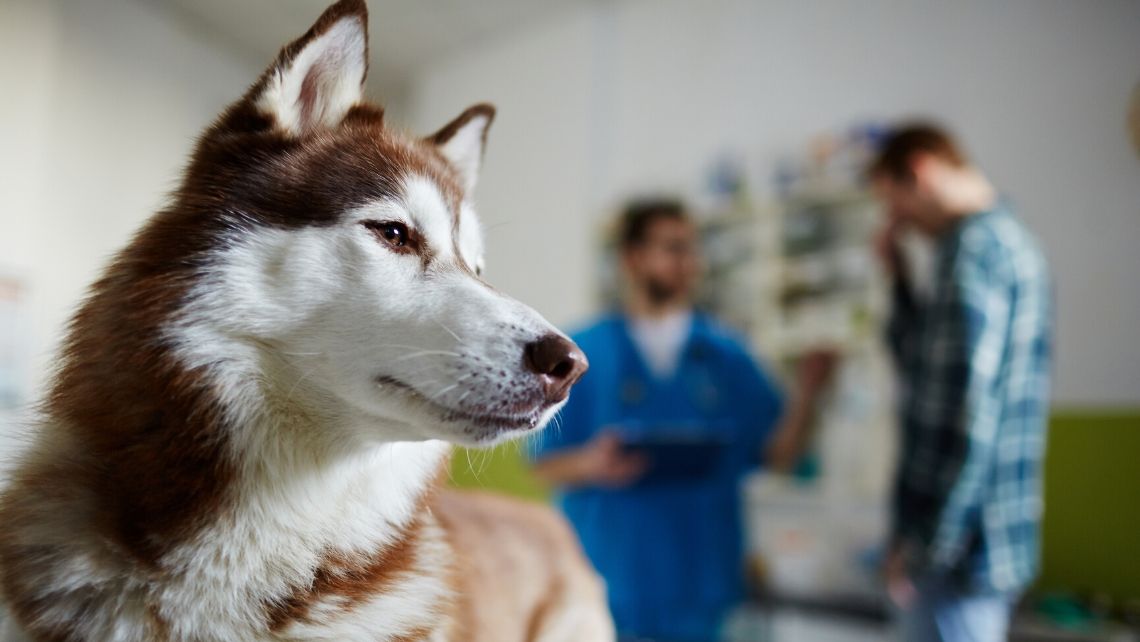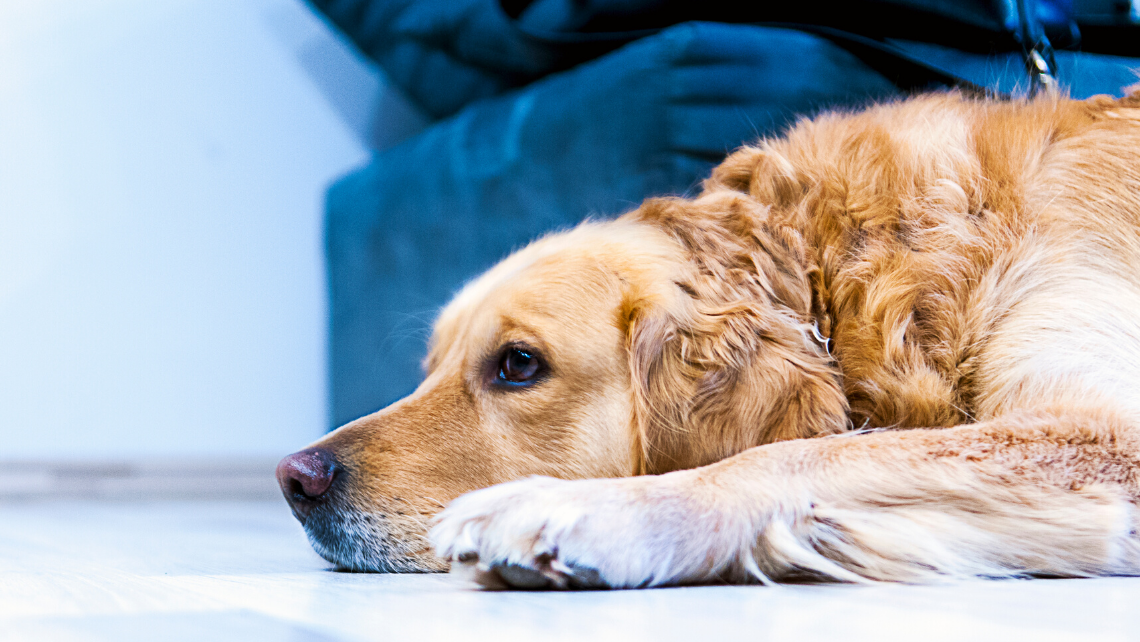The disease now known as COVID-19 is caused by the virus SARS-Cov-2, a coronavirus largely responsible for respiratory symptoms.
Even before COVID-19 was considered a pandemic, the question whether our pets (namely cats and dogs) could be infected or transmit the disease was already being raised. Here are some Frequently Asked Questions on the subject, which our team of veterinarians has answered for you:
Can SARS-CoV-2 infect pets and can pets transmit the disease?
At this time (March 2020) and according to the World Health Organization (WHO) and the World Small Animal Veterinary Association (WSAVA) there is no evidence that pets (cats and dogs) can be infected by SARS-Cov-2 or transmit COVID-19 to a susceptible host.
Can pets help spread COVID-19?

It’s unlikely that pets can transmit COVID-19, since all evidence points to transmission primarily occurring by direct contact with infected people’s bodily secretions (saliva, mucus droplets in a cough or sneeze). Indirect transmission via a contaminated surface or object and then touching our mouths, noses and eyes appears to be a secondary route. The virus seems to be more easily transmitted on smooth surfaces rather than porous ones (like pet fur), making it harder to contract through simple touch says the American Veterinary Medical Association (AVMA)
If I become infected with COVID-19 which precautions should I take, including with my pet?
Your precautions concerning COVID-19 should follow your local Health Authority’s Guidelines; however, should you confirm your diagnosis, you should inform authorities that you have a pet. In spite of there being NO EVIDENCE that pets can be infected or transmit COVID-19, if you are infected you should reduce contact with pets in your household. Ideally, you should ask another family member or a friend to look after your pet for you during your recovery.
What should I do to make arrangements for my pet in case I become ill?
Make sure someone in your household or elsewhere, family member or friend, can look after your pet during your recovery. Let them know this plan in advance. Let’s hope for the best and prepare for the worse. Have a small emergency kit and contact list ready: food, toy, blanket or bed, veterinarian’s contact and special recommendations (like does he take medication or what are his daily routines like).
If my pet needs to go to the vet, what should I do?

Call your veterinarian. Let them know what’s wrong and ask what their services are like these days. Some clinics have shut down altogether, others will only see you in case of an emergency and ALL of those who remain open have put into practice special measures to protect both their staff and their clients. Book an appointment (don’t show up unannounced). Make sure you’re on time and follow the instructions. Go alone (with your pet) so they don’t have to deal with unnecessary people that pose extra risks for everyone. Follow good practices, as instructed by your local Health Authority.
If you’re experiencing symptoms like cough, fever or respiratory distress, contact your local Health Authority and ask for instructions. If you are confirmed COVID-19 positive, stay in isolation. Even if your pet needs medical care, you should contact your veterinarian by phone and allow them to determine the urgency of your pet’s situation. If your veterinarian deems it necessary to book an appointment please ask a family member or friend to take your pet to the vet.
Can I walk my dog during social distancing period?
Yes, you can walk your dog. You may want to limit the duration of your walks, choose places you know to have few or no people around and keep your distance from anyone else. When you get home, remember to take off your shoes and wash your dog’s paws with soap and water. Don’t use alcohol-based products or pet wipes containing chlorhexidine as alcohol may cause irritation to your pet’s skin and chlorhexidine isn’t effective against SARS-Cov-2.
What do I do if I need pet supplies like food or medication?
You can try to find out if you have alternatives online. You can also call your local store or veterinary clinic and ask if they are using any type of home delivery system. A lot of businesses have started doing so to help their clients during this period. In case you’re not able to find the same food you usually give your pet, don’t forget to transition gradually into the new brand of petfood, as to avoid any gastrointestinal problems. This implies buying the new brand before you run out of the previous one. As for medication, contact your usual veterinarian for a prescription or to ask if they have their own delivery system. You may be able to buy some veterinary drugs at your local pharmacy with your vet’s prescription.
As a rule, always wash your hands before and after interacting with your pet.
Make sure you do everything you can to keep your pet healthy. Preventive health is always important but now that most services (including veterinary services) are limited – it makes even more sense to avoid situations that may pose a risk to your pet’s health.
To keep a pet diary and reminders on all your pet’s health events you can use the PETABLE App:

Leave a Comment